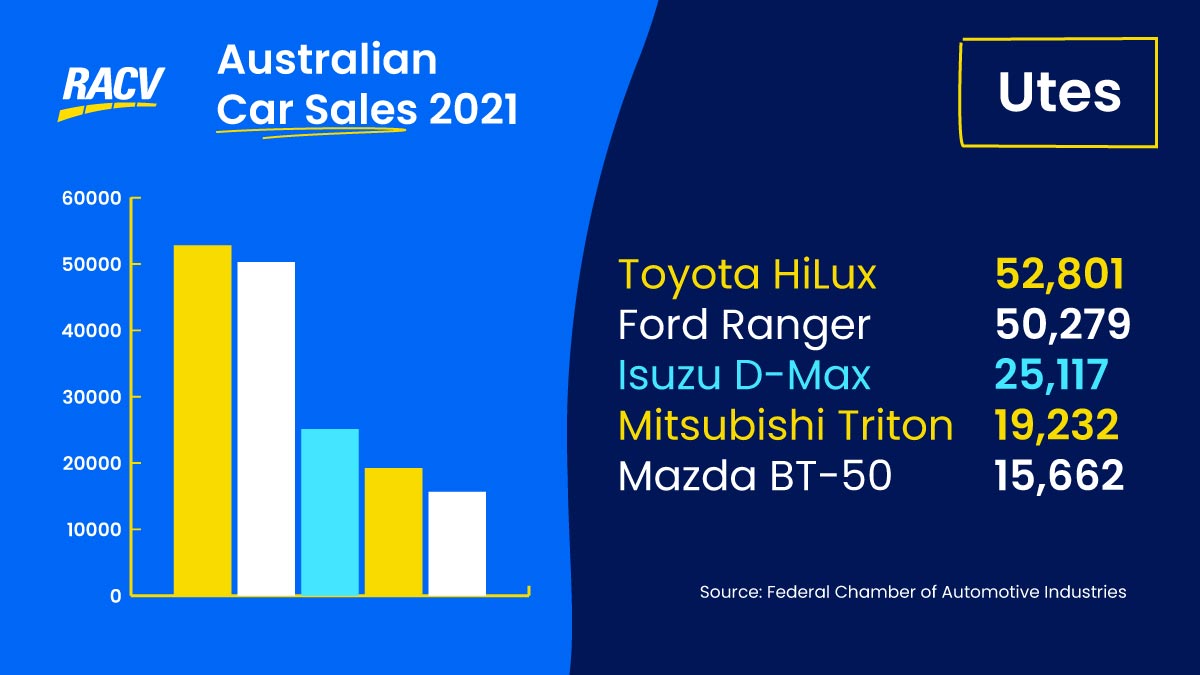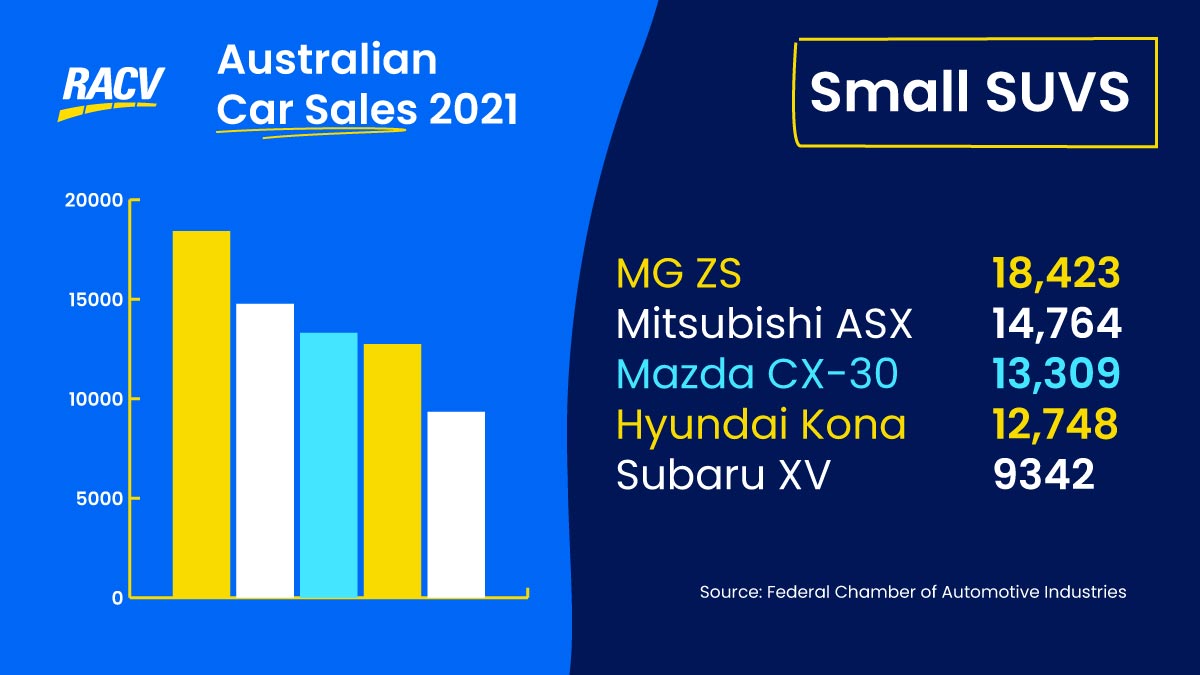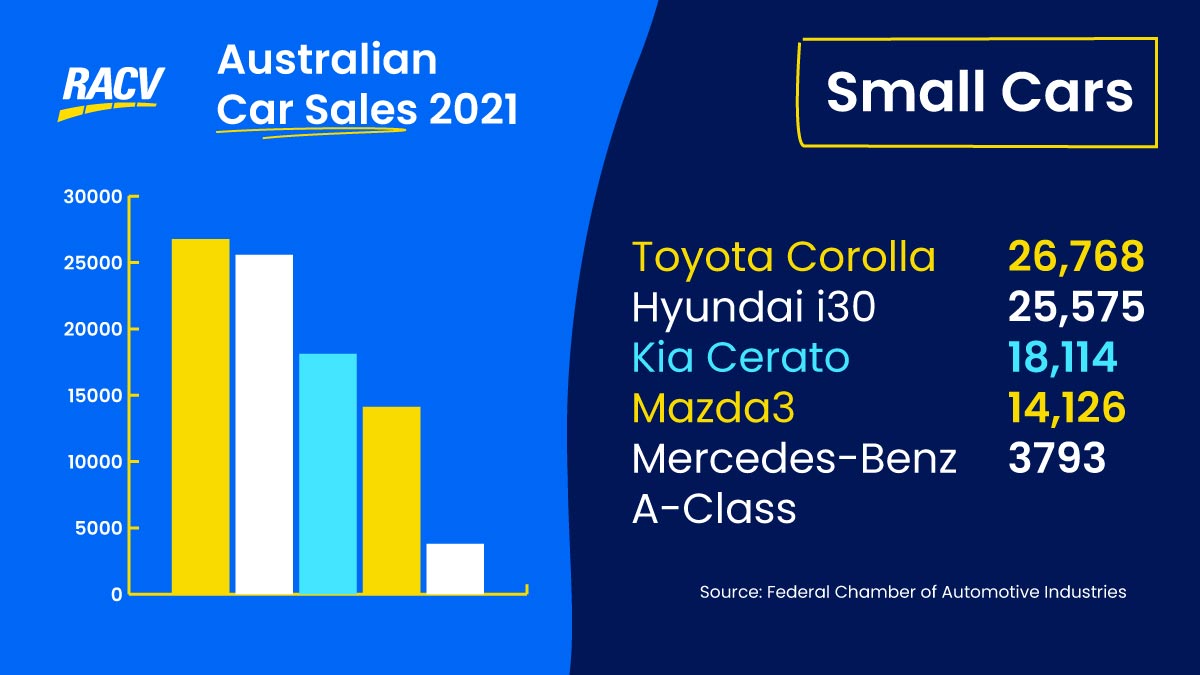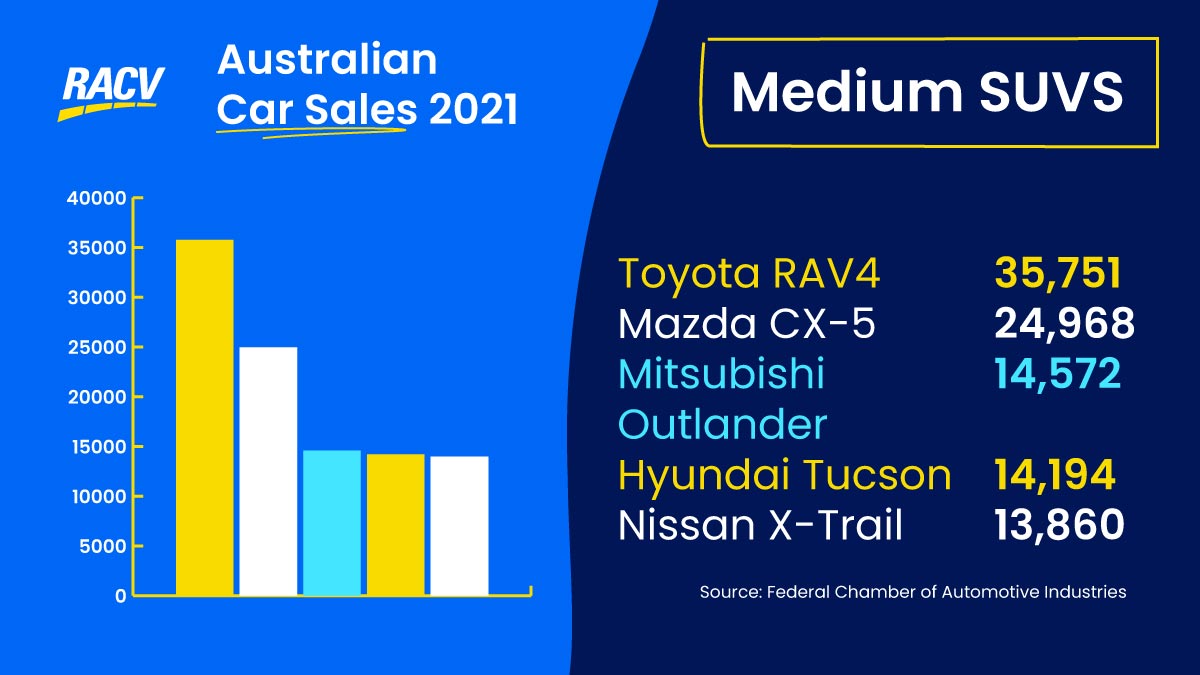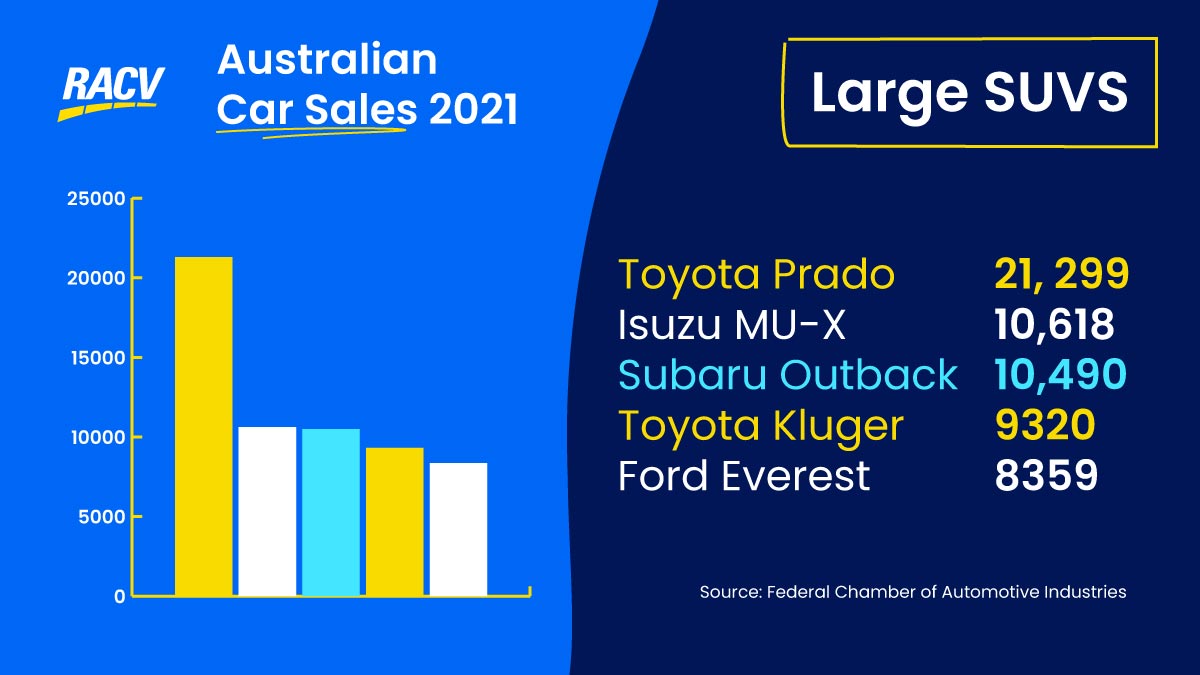Is the 2026 Tesla Model Y still the best electric SUV in Australia? We test price, range, efficiency, space, safety and Full Self-Driving (Supervised) in local conditions.
Australia’s top-selling cars of 2021

It was a wheel-to-wheel race to the finish between the Toyota HiLux and Ford Ranger to be crowned 2021 champion.
The duo collectively sold more than 103,000 vehicles - more than 10 per cent of Australia’s 1,049,831 vehicles sold last year.
That total represents an increase of 14.5 per cent on the automotive industry’s pandemic-powered and semiconductor-shorted “annus horribilis” that was 2020.
The figures released by the Federal Chamber of Automotive Industries (FCAI) and are a positive result, despite the past quarter seeing a slump compared to previous years.
SUVs accounted for more than half of all sales for the first time in Australia, reflecting our increasing preference for high-riding vehicles.
Toyota led two of the four SUV categories: Toyota Prado (21,299 sales) in the large SUVs and Toyota RAV4 (35,751) in the medium ranks.
Mazda took the honours in the light SUV battle with 12,873 sales, while MG’s ZS model owned the small division with 18,423 sales.
The Toyota Corolla was the most popular sedan/hatch sold in the country last year, accounting for 28,768 registrations in the small car ranks. Its bigger brother, the Toyota Camry, tops the medium passenger car segment with 13, 081 sales. Daylight is second in the form of the Mazda5 with 1491 sales, just ahead of the Skoda Octavia.
Japan still accounts for the majority of all cars sold in Australia at 33.4 per cent, ahead of Thailand (22 per cent) and South Korea (13.8 per cent).
Industry’s current mood
FCAI chief executive Tony Weber says the 2021 figures are a solid result considering COVID-19 restrictions and international supply issues.
Mr Weber noted that while electric vehicles enjoyed a 191.1 per cent rise in sales on the previous year, EVs still accounted for a tiny proportion of the Australian car fleet. Just 5149 electric vehicles were sold last year across the passenger car, SUV and light commercial segments.
It is worth remembering the numbers don’t include Tesla vehicles, with the company not providing sales figures.
“While this number may appear impressive, it is important to note that overall electric vehicle sales as reported through VFACTS account for just 0.49 per cent of the total market share,” Mr Weber says.
Toyota continues its dominant run in Australia with the Japanese behemoth posted its nineteenth consecutive year of market leadership with 223,642 sales.
Those sales represent almost 25 per cent of total market share, more than double that of its nearest rival Mazda, who posted 101,119 registrations.
Hyundai was third (72,878), followed by Ford (71,380), Kia (67,964), Mitsubishi (67,732) and Nissan (41,263).

The Ford Ranger was pipped at the post by the Toyota HiLux
Winners and losers
Newcomer MG continues to be the big improver with sales more than doubling to 39,025 and ended the year in ninth place overall, just behind Volkswagen (40,770) and ahead of Subaru (37,015).
Great Wall Motors also enjoyed a stellar 2021 with sales climbing from 5235 in 2020 to 18,384. Hyundai’s luxury offshoot Genesis also doubled its sales over the year, albeit off a much lower base, from 229 to 734.
Last year was a downer for some companies, however. Honda sales slipped from 29,040 to 17,562; Citroen’s tally of 175 cars was 128 lower than 2020 and Alfa Romeo lost 116 sales to finish 2021 with 618 registrations.
COVID restrictions didn’t affect the top end of town, as shown by the number of expensive vehicles that rolled out of showrooms last year.
Aston Martin sales rose from 92 in 2020 to 140 sales in 2021; Maserati geared up from 467 to 540; Bentley expanded from 165 to 219; Lamborghini’s tally of 131 was 20 more than the previous year and Porche was 205 up on 2020 with 4428.
The information provided is general advice only. Before making any decisions please consider your own circumstances and the Product Disclosure Statement and Target Market Determinations. For copies, visit racv.com.au. As distributor, RACV Insurance Services Pty Ltd AFS Licence No. 230039 receives commission for each policy sold or renewed. Product(s) issued by Insurance Manufacturers of Australia ABN 93 004 208 084 AFS Licence No. 227678.
